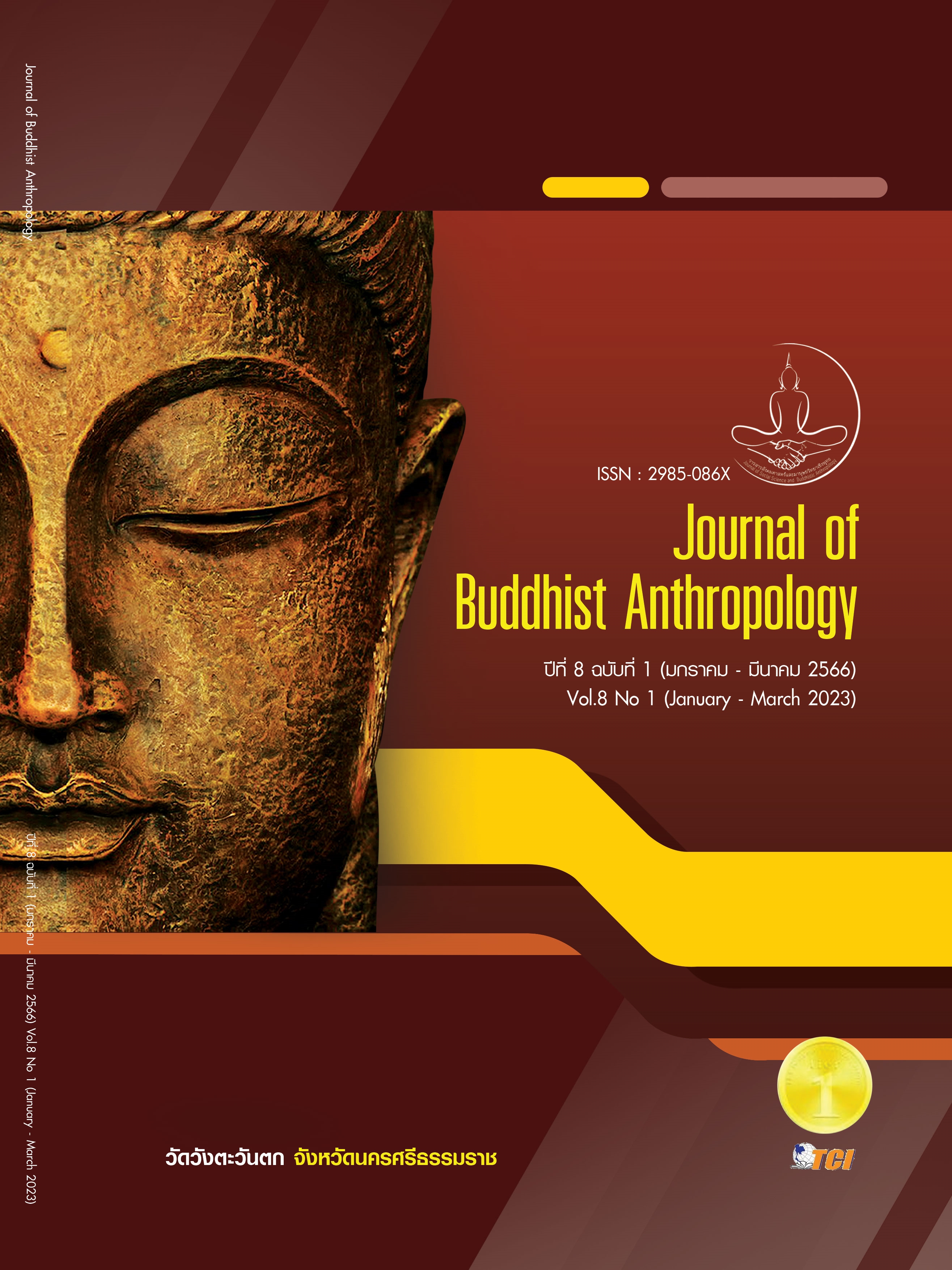CULTIVATION OF MORALITY, ETHICS AND CIVILITY OF EARLY CHILDHOOD CHILDREN ACCORDING TO DESIRABLE THAI ATTRIBUTES
Keywords:
Cultivation of Morality, Ethics and Civility, Early Childhood Children, Desirable Thai AttributesAbstract
Background and Objective: This research aims to study the results of cultivating morality, ethics, and civility in early childhood children according to desirable Thai attributes. The researcher conducted this research with two phases of research: 1) Studying desirable Thai attributes and 2) Studying the results of activities to cultivate morality, ethics, and civility in early childhood children according to desirable Thai attributes. The target group in the study was qualified persons, namely five teachers, three parents of early childhood children, and two primary school teachers, obtained from the purposive sampling method, a total of 10 persons. Boys and girls aged 3 - 6 who study kindergarten 1 - 3 in the city's prominent schools, namely Manee Anusorn School and Watcharapol Kindergarten, were selected from a purposive sampling method of 65 students.
Methodology: The researcher conducted this research with mixed methods. The instruments are questionnaires and manuals for cultivating morality, ethics, and civility in early childhood children according to desirable Thai attributes.
Main Results: The results of the study of cultivating morality, ethics, and civility in early childhood children according to desirable Thai attributes were summarized as follows: 1) The results of the study of desirable Thai attributes according to Buddhist doctrines consist of three aspects: Physicality, Speech, and Mentality; 2) The results of the activities cultivating morality, ethics, and civility in early childhood children according to the desirable Thai attributes of Thai people from observing the moral, ethical, and civility of early childhood children according to desirable Thai attributes. Before and after the activities, there are three aspects of Thai people's desirable attributes according to Buddhist doctrine: Physicality, Speech, and Mentality. Desirable physicality attributes include doing the right things and behaving with civil physicality. Desirable speech attributes include saying the right words, do not lie, and deceive. Desirable civil mentality attributes include thinking the right way. And after organizing activities to cultivate morality, ethics, and civility in early childhood children according to desirable Thai attributes, early childhood children have higher behavior scores according to desirable Thai attributes than before the activity. They can be sorted as follows: Speech, Mentality, and Physicality aspects have an average difference score of 4.89, 4.02, and 3.00, respectively. Comparison of behavioral scores on morality, ethics, and civility scores of early childhood children based on desirable Thai attributes before and after the overall activity was found that after organizing activities to cultivate morality, ethics, and civility in early childhood children according to desirable Thai attributes, early childhood children behave according to desirable Thai attributes higher than before the activities with an average difference of 3.97 points, the activities cultivates in the morality, ethics, and civility of early childhood children based on desirable Thai attributes, encouraging early childhood children to have higher behavioral scores than before the activities.
Involvement to Buddhadhamma: There are three desirable attributes of Thai people concerning Buddhist doctrine: Physicality attributes, Speech attributes, and Mentality attributes.
Conclusions: This research concludes that this study cultivates morality, ethics, and civility in early childhood children according to desirable Thai attributes concerning Buddhist doctrines that are used as a framework for organizing activities for early childhood. After the activity, it was found that organizing activities using teaching units and lesson plans that integrate Buddhist teachings resulted in early childhood children having good physicality, speech, and mentality attributes with an average difference of 3.97 points. Early childhood children speak modestly with manner, which is a desirable speech expression. Additionally, early childhood children express love and goodwill towards their peers in the classroom, which is a desirable mentality expression, etc.
References
Mahasomchai Singh. (2004). Auspicious Life Edition "The Way Forward". International Buddhist Club in The King Maharaj Mangkalajan.
Office of the Civil Service Commission. (2000). Following in the footsteps of the Royal Family: Royal Code of Royal Assent to Civilians. The OCSC operates with royal permission. People Limited.
Office of the Secretary-General of the Education Council. (2019). National Education Standards 2018. 21 Century Ltd.
Panthumnawin, D. & Prachon-punjanont, P. (1977). Ethics of Thai Youth (1st edition). Institute of Behavioral Science Research, Srinakharinwirot University.
Phra Promkhunaporn (P. A. Payutto). (2003). Life Statute (82nd edition). PimSuuay.
Poldharma, N. (2018). Ethics and organizational development. Journal of Modern Learning Development. 3(1), 17-27.
Satyadham, P. (2001). Teacher's Morality. Ploy Plate.
Tantipakachiva, K. (2008A). Early Childhood Education Teaching Style. Mit sam-pan. Graphics.
Tantipakachiva, K. (2008B). Organizing learning activities for early childhood. PuanASON.
Downloads
Published
How to Cite
Issue
Section
License
Copyright (c) 2023 Journal of Social Science and Buddhistic Anthropology

This work is licensed under a Creative Commons Attribution-NonCommercial-NoDerivatives 4.0 International License.









